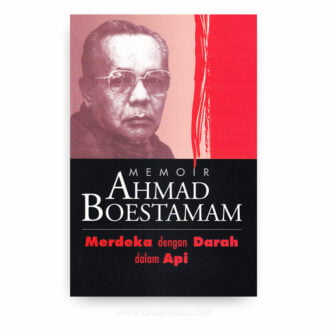Malaysian Monarchy and the Bonding of the Nation is the 8th Pok Rafeah Chair Public Lecture delivered by Anthony Milner on 14 July 2011 at the Institute of Malaysian and International Studies (IKMAS), Universiti Kebangsaan Malaysia. A recent, major study on the ‘development of Malay Kingship’ speaks of the ‘socio-political revival’ of Malay monarchy that is currently taking place in this country. There is talk, says the book, of a rejection of the ‘Westminster-style constitutional monarch’ and the advancing of another type of ‘Southeast Asian monarchy perfected by the Ruler of Thailand.’
This lecture considers these propositions and then examines Malaysian monarchy from three directions. The first concerns the powers of the Rulers, or rather how the Rulers’ powers have fared during the last two centuries. The second examines the changing ideology of Malaysian monarchy an important topic that has been much neglected. The third deals with the specific issue of whether the Malaysian Rulers ought best to be understood as ‘Malay Rulers’ or ‘Rulers.’ It is particularly in this last section of the Lecture that the issue of the ‘bonding of the nation’ will be examined. This issue is of central importance in a research project being undertaken this year at IKMAS under the auspices of the Distinguished Pok Rafeah Chair in International Studies.
Down the Rulers have tumbled, down and down, at least according to this narrative and yet now Kobkua challenges us with the argument that monarchy is enjoying a ‘socio-political revival.’ In this lecture, the author responds to Kobkua’s challenge by reviewing the role of monarchy from three different angles. First, the author discusses the issue of royal power and ‘power’ is a word Kobkua uses often and in particular offer the author’s own account of the historical context of current royal assertiveness. Secondly, the author examines the ideology of monarchy, or more precisely the dramatic ways in which the understanding and presentation of the monarchy in Malaysia have changed over the last two centuries. This is a topic that has been neglected in Malaysian studies, including in Kobkua’s book.
The third and final concern to put the question succinctly will be to ask whether when Malaysians are weighing up the usefulness or otherwise of their political heritage, too much attention is given to ‘Malay monarchy’ rather than ‘monarchy’. This final issue brings the author back to the topic of his first ‘Pok Rafeah Lecture’: the ideological challenge Malaysians face in their racially-divided, ‘plural society’: the task of ‘bonding the nation.’











Reviews
There are no reviews yet